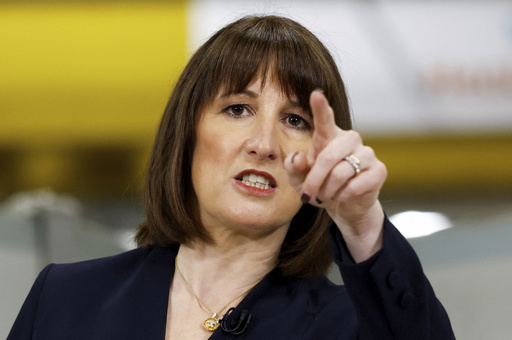
LONDON — In a recent report, the U.K. has experienced a rise in inflation, reaching a ten-month peak in January. This new development may lead to lowered expectations regarding swift interest rate cuts from the Bank of England.
According to the Office for National Statistics, the consumer prices index reflected an increase in inflation to 3% year-on-year as of January, compared to 2.5% in the previous month. This surge surpasses the bank’s target rate of 2% and can be attributed largely to heightened costs in air travel, food prices, and private schooling fees, following the new Labour government’s implementation of a sales tax.
Economists had predicted a smaller increase to around 2.8%, making the actual rise quite unexpected and likely to raise concerns among central bank policymakers, especially considering the current sluggish economic growth in the U.K.
Earlier this month, the Bank of England made the decision to reduce its primary interest rate by 0.25 percentage points, bringing it down to 4.50%. This marks the third such reduction in a six-month span, as the bank halved its growth forecast for the U.K. for 2025 to a mere 0.75%.
Should growth remain as subdued as anticipated, it will pose a significant setback for the new Labour government, which has prioritized economic growth to enhance living standards and provide much-needed funding for public services facing financial constraints. The party’s popularity has notably diminished since its election win in July as growth continues to lag behind expectations.
The government is likely counting on support from the central bank through additional interest rate cuts, which would lead to lower mortgage costs and reduced loan expenses, albeit at the expense of returns for savers.
Many economists predict that inflation may continue to rise in the coming months due to increased domestic energy costs; however, they foresee a downward trend in the latter half of the year, potentially giving policymakers the opportunity for more rate reductions—though probably not as frequently as initially believed.
“The likelihood of another rate cut in March appears slim, with the bank maintaining a gradual approach to easing for the time being,” stated Luke Bartholomew, deputy chief economist at abrdn, formerly known as Aberdeen Asset Management. “The acceleration of rate cuts later in the year will hinge on inflation returning toward the 2% target.”

